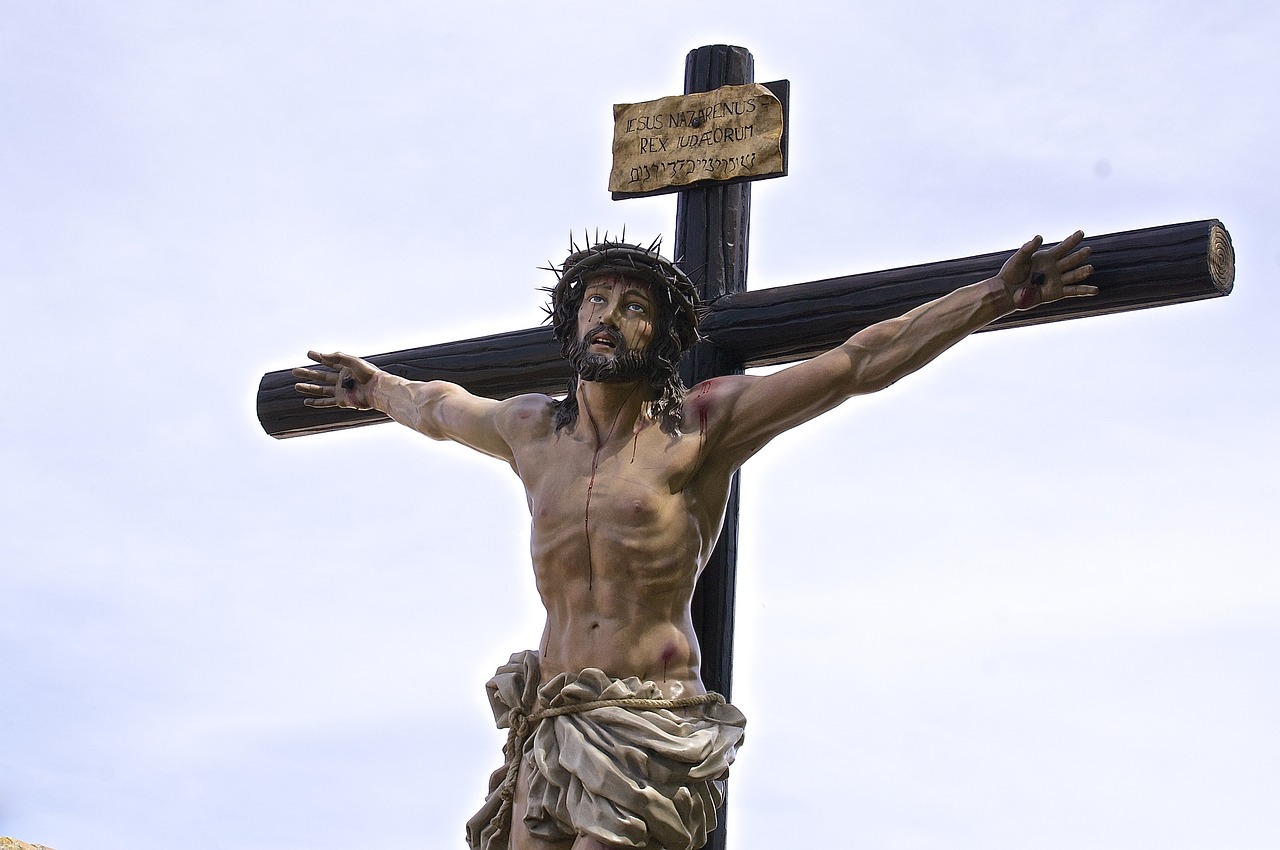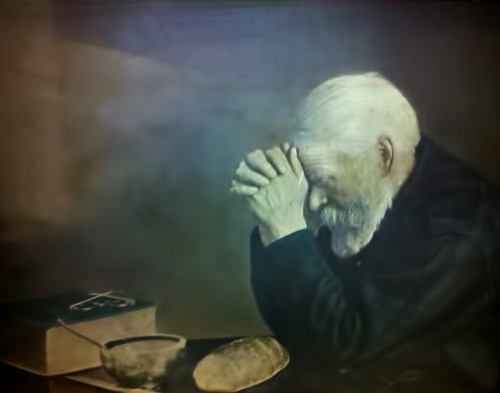Introduction
Psalm 22 holds significant importance as a Messianic foreshadowing of the suffering and redemption of Christ. It establishes a profound connection with the crucifixion narrative, providing a glimpse into the profound sacrifice and ultimate victory of Jesus on the cross.
Psalm 22 is a powerful psalm written by King David, often referred to as the “Psalm of the Cross.” It serves as a prophetic glimpse into the suffering and redemption that Jesus would experience on the cross. The psalm begins with the agonizing cry, “My God, my God, why have you forsaken me?” [3],which Jesus Himself quoted while hanging on the cross. This connection between the psalm and the crucifixion narrative highlights the Messianic fulfillment found in Psalm 22.
Psalm 22 not only depicts the psalmist’s personal anguish but also foreshadows the suffering that Jesus, the Messiah, would endure. This psalm serves as a bridge between the Old Testament prophecies and the fulfillment of God’s plan through Jesus Christ. It lays the groundwork for understanding the sacrificial nature of Jesus’ death and the redemption that would come through His resurrection.
Overview of Psalm 22
Psalm 22 follows a distinct structure and explores themes of abandonment, suffering, and ultimate deliverance. It can be divided into three sections: the psalmist’s distress and lament, the psalmist’s prayer for deliverance, and the psalmist’s expression of praise and trust in God’s faithfulness.
The psalmist begins with a vivid description of their anguish, feeling abandoned and scorned by both God and people. They describe their physical suffering, with bones out of joint, a parched tongue, and surrounded by evildoers. Despite the psalmist’s distress, they cling to the hope that God will deliver them and express trust in His faithfulness.
One example of the psalmist’s distress is found in verse 6, where they say, “But I am a worm and not a man, scorned by everyone, despised by the people.” This verse portrays the dehumanization and mockery that the psalmist experiences, which finds a striking parallel in the mocking and taunting that Jesus endured during His crucifixion. Both the psalmist and Jesus faced similar situations of being scorned and despised by others.
In the second section, the psalmist turns to God in prayer, crying out for deliverance and expressing their unwavering trust in God’s character and promises. They acknowledge God as their strength and praise Him for His past faithfulness to His people. The psalmist implores God to save them from their enemies and declares their intention to proclaim God’s name among the people.
The psalmist’s prayer for deliverance is an example of their unwavering faith in God’s faithfulness. In verse 9, they say, “Yet you brought me out of the womb; you made me trust in you, even at my mother’s breast.” This verse highlights the psalmist’s trust in God’s faithfulness from birth, a trust that remained unwavering even in the face of immense suffering and abandonment.
The final section of the psalm is marked by a shift in tone, as the psalmist expresses confidence in God’s deliverance and praises Him for His faithfulness. They declare that all the ends of the earth will remember and turn to the Lord, acknowledging His sovereignty over all nations. The psalm concludes with a proclamation of God’s righteousness, calling future generations to praise and worship Him.
The psalmist’s expression of praise and trust in God’s faithfulness is seen throughout the psalm. In verse 22, they say, “I will declare your name to my people; in the assembly I will praise you.” This declaration of praise and intention to proclaim God’s name reflects the psalmist’s trust in God’s deliverance and their desire to magnify His name among the people.
Analysis of Messianic Foreshadowing in Psalm 22
Within the verses of Psalm 22, we find prophetic references to the suffering and redemption of Christ. The language and imagery used align remarkably with the crucifixion narrative.For example, in verse 16, the psalmist speaks of their hands and feet being pierced, a striking parallel to Jesus’ crucifixion. This verse, along with others in the psalm, serves as a prophetic glimpse into the specific details of Jesus’ sacrificial death.
Another significant parallel can be found in verse 18, where the psalmist describes their clothing being divided among their enemies and lots being cast for their garments. This imagery mirrors the scene of Roman soldiers dividing Jesus’ garments and casting lots for His seamless robe. These parallels between Psalm 22 and the crucifixion narrative highlight the Messianic significance of the psalm.
The psalmist’s description of their suffering and their enemies’ actions in Psalm 22 closely aligns with the events surrounding Jesus’ crucifixion. The psalmist’s hands and feet being pierced and the casting of lots for their clothing find fulfillment in Jesus’ crucifixion. These specific details reinforce the prophetic nature of the psalm, pointing to Jesus as the Messiah who would suffer and redeem humanity.
#Messianicprophecy #Psalm22interpretation #SufferingMessiah #Messianichope #Davidiclineage #Biblicalprophecy #JesusasMessiah #OldTestamentprophecy #Redemptionprophecy #Messianicfulfillment #SonofGod #Messianicanticipation #Divineforsakenness #WorshipoftheMessiah #TheLord’sAnointed #PropheticPsalms #SalvationthroughtheMessiah
Connection to the Suffering and Redemption of Christ
The suffering and deliverance described in Psalm 22 find their exact counterpart in the sufferings of Jesus on the cross. Jesus Himself quoted the opening line of Psalm 22, “My God, my God, why have you forsaken me?”. By doing so, He not only identified with the psalmist’s anguish but also affirmed the fulfillment of Messianic prophecy in His own life.
Jesus experienced the depths of abandonment and suffering as He bore the weight of the world’s sin on the cross. In that moment, He became the sacrificial Lamb, taking upon Himself the punishment that humanity deserved. Just as the psalmist expressed trust and hope in God’s faithfulness, Jesus placed His trust in the Father, knowing that His suffering would ultimately lead to redemption and victory.
The connection between the suffering and redemption in Psalm 22 and the crucifixion of Christ is profound. The psalmist’s cry of abandonment and their ultimate deliverance resonate with the experience of Jesus on the cross. Both the psalmist and Jesus faced the anguish of feeling forsaken by God, yet both clung to their trust in God’s faithfulness and experienced deliverance.
Significance of Old Testament Prophecies
Old Testament prophecies play a crucial role in establishing the Messianic context of Psalm 22. The fulfillment of these prophecies through Jesus’ life and crucifixion further validates the Messianic foreshadowing present in the psalm. The intricate details of Jesus’ crucifixion, such as being numbered with transgressors and having His hands and feet pierced, highlight the divine orchestration of events foretold through the prophets.
The prophecies of the Old Testament provide a framework for understanding the coming of the Messiah and His redemptive work. They serve as a roadmap, guiding believers to recognize Jesus as the fulfillment of God’s promises. Psalm 22, with its vivid depiction of suffering and redemption, adds another layer to the tapestry of Messianic prophecies, further illuminating the significance of Jesus’ sacrificial death on the cross.
The fulfillment of Old Testament prophecies in Jesus’ life and crucifixion demonstrates the continuity and consistency of God’s plan throughout history. The specific details mentioned in Psalm 22, such as the piercing of hands and feet, find fulfillment in Jesus’ crucifixion. These prophecies not only validate the Messianic foreshadowing in the psalm but also deepen our understanding of God’s redemptive plan through Christ.
The Crucifixion Narrative in Relation to Psalm 22
When we examine the details in Psalm 22 alongside the New Testament accounts of Jesus’ crucifixion, remarkable parallels emerge. The mocking, scorn, and gambling for clothing described in both the psalm and the crucifixion narrative reflect the harsh reality Jesus faced on the cross. Specific prophecies mentioned in Psalm 22 find fulfillment in Jesus’ crucifixion, further affirming the Messianic significance of the psalm.
Psalm 22:7-8 speaks of people mocking and taunting the psalmist, saying, “He trusts in the LORD; let him deliver him; let him rescue him, for he delights in him.” This echoes the words of the religious leaders and onlookers who taunted Jesus on the cross, challenging Him to prove His identity as the Son of God. The fulfillment of these prophecies demonstrates the divine foreknowledge and orchestration of Jesus’ crucifixion, validating Him as the long-awaited Messiah.
The psalmist’s description of the mocking and taunting they faced in Psalm 22 finds a striking parallel in the mocking and taunting that Jesus endured during His crucifixion. Just as the psalmist expressed their trust in God’s faithfulness in the face of mockery, Jesus remained steadfast in His identity as the Son of God, knowing that His suffering would bring about redemption for all humanity.
Theological Implications of Psalm 22
The connection between Psalm 22 and the crucifixion of Christ carries profound theological implications. The suffering and redemption depicted in the psalm reflect the sacrificial nature of Jesus’ death and the fulfillment of God’s plan for salvation. Through His ultimate sacrifice, Jesus conquered sin and death, offering hope and victory to all believers. Psalm 22 serves as a powerful reminder of God’s faithfulness and the assurance of His redemptive work.
The suffering and redemption depicted in Psalm 22 also highlight the sacrificial nature of Jesus’ death. Just as the psalmist placed their trust in God’s faithfulness, Jesus willingly surrendered Himself to the Father’s will, knowing that His suffering would bring about the redemption of humanity. In His death and resurrection, Jesus offers forgiveness, reconciliation, and eternal life to all who put their trust in Him.
Psalm 22 reveals the depth of God’s love and His willingness to enter into human suffering. In Jesus’ identification with the psalmist’s anguish, we see the compassionate heart of God, who willingly took on human flesh to experience the full range of human emotions and pain.
Historical Interpretations of Psalm 22
Throughout history, both early Christians and Jewish sages recognized the prophetic nature of Psalm 22 and its significance in relation to the Messiah. Early Christians saw the suffering servant described in the psalm as a direct reference to Jesus, emphasizing the Messianic foreshadowing present in the psalm.
Jewish sages also recognized the Messianic significance of Psalm 22, with some interpreting the psalm as referring to the suffering of Israel as a whole. However, a closer examination of the psalm reveals specific details that align with the crucifixion narrative, pointing to Jesus as the ultimate fulfillment of the Messianic prophecies contained within the psalm.
Psalm 22 finds further support and alignment with other Messianic prophecies, such as Isaiah 53, which also speaks of a suffering servant who would bear the sins of humanity. The recognition of these prophecies by both early Christians and Jewish sages underscores the profound fulfillment of Messianic expectations in the person and work of Jesus Christ.
Debates and Controversies
One particular verse in Psalm 22, verse 16, has been a subject of debate and interpretation. The phrase “they pierced my hands and my feet” has led to differing views among scholars and Jewish Rabbis. Some argue for alternative translations, such as “like a lion,” suggesting that the original Hebrew text may have been mistranslated or misinterpreted.
However, evidence supporting the reading of “pierced” in relation to Jesus’ crucifixion exists. The New Testament Gospels explicitly mention the piercing of Jesus’ hands and feet on the cross, fulfilling the prophetic imagery found in Psalm 22. The application of Psalm 22 to Jesus does not solely depend on the wording of verse 16 but on the comprehensive message of the entire psalm, which clearly aligns with the events of Jesus’ crucifixion.
While debates and controversies surrounding specific verses may continue, the overall message and Messianic foreshadowing present in Psalm 22 remain steadfast and powerful.
Psalm 22 in the Context of Jesus’ Ministry
The significance of Jesus quoting the opening line of Psalm 22, “My God, my God, why have you forsaken me?” cannot be overstated. It serves as a direct reference to the psalm and strengthens the understanding of Jesus’ role as the suffering Messiah. By quoting these words, Jesus not only identified Himself with the psalmist’s anguish but also affirmed the fulfillment of Messianic prophecy in His own life.
The connection between Psalm 22 and other events in Jesus’ life, ministry, and teachings further highlights the profound significance of this Messianic foreshadowing. Throughout His earthly ministry, Jesus demonstrated a deep understanding of the Old Testament Scriptures, often drawing upon them to reveal His identity and mission. The parallels between Psalm 22 and Jesus’ crucifixion are just one example of how Jesus fulfilled the Messianic prophecies and brought to fruition God’s plan of salvation.
Application and Relevance for Believers
The Messianic foreshadowing and the suffering depicted in Psalm 22 resonate with the challenges and trials believers face today. As we navigate our own struggles, we can find hope and strength in the ultimate redemption and victory portrayed in the psalm. The psalmist’s trust in God’s faithfulness despite their circumstances serves as an encouragement for believers to place their trust in God and His redemptive work.
Just as the psalmist expressed their prayers and petitions to God, we too can pour out our hearts before Him. In times of suffering and abandonment, we can find solace in knowing that Jesus, our High Priest, understands our pain and intercedes on our behalf. Psalm 22 reminds us that God is near to the brokenhearted and that He is faithful to deliver and redeem His people.
The message of hope and victory found in Psalm 22 is not limited to a specific time or place but is timeless and applicable to believers in every generation. It serves as a reminder that, despite the suffering we may face in this world, God is at work, bringing about His ultimate plan of redemption and restoration.
Conclusion
Psalm 22 stands as a crucial Messianic foreshadowing of the suffering and redemption of Christ. Its connection to the crucifixion narrative, the fulfillment of Old Testament prophecies, and its theological implications make it a profound testament to God’s redemptive plan. By exploring the depths of Psalm 22, believers can gain a deeper understanding of the sacrificial nature of Jesus’ death and find hope in the message of victory it conveys.
As we reflect on the Messianic foreshadowing found in Psalm 22, may we be reminded of God’s faithfulness, even in the midst of suffering and abandonment. Just as the psalmist and Jesus trusted in God’s deliverance, let us also trust in His redemptive work in our lives. May Psalm 22 be a source of encouragement and hope, reminding us of the sacrificial love of Jesus and the ultimate victory He achieved on the cross.



